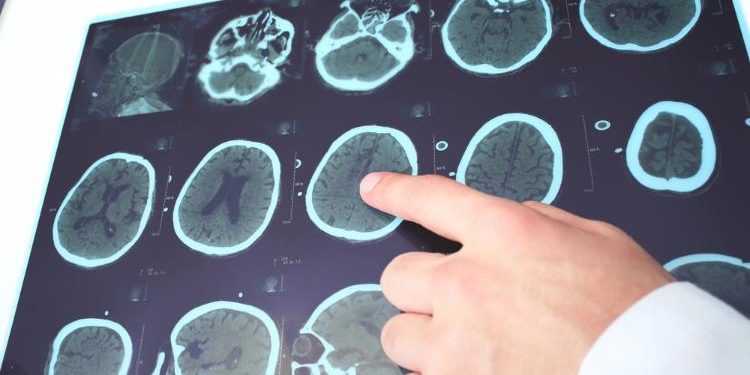People with MS may have many different symptoms that affect their vision, balance and muscle strength. They can also have a feeling of pins and needles, bladder problems or fatigue.
To diagnose multiple sclerosis, your healthcare provider will use a combination of strategies including learning about your medical history and doing a neurologic exam. They may order tests such as magnetic resonance imaging (MRI) and cerebrospinal fluid analysis.
Symptoms
The first signs of MS are usually related to damage or problems with your nerve covering, which doctors call your myelin sheath. This is most common along the brain and spinal cord. It slows or stops nerve signals from getting through. This can lead to a variety of symptoms that change from person to person and from time to time. They also depend on which part of your central nervous system (CNS) is affected.
The earliest sign is often a feeling of numbness or pins and needles that affects your face, arms, or legs, especially on one side of the body. This can be the result of a lack of blood flow or a pinched nerve, so it’s important to check with your doctor. If your numbness is sudden, it might be an early warning sign of a stroke. This needs to be treated right away.
Another early symptom is weakness of muscles, which can include a muscle spasm or stiffness that makes it hard for you to move or use the affected area. This can be a side effect of certain medications, but it’s also a sign of nerve demyelination. Muscle pain is a common MS symptom, and it can be caused by either nerve damage or muscle injury. It can be difficult to distinguish from other causes of pain, such as a heart attack or arthritis.
Many people with MS experience changes in their vision, such as double or blurred vision that may only happen at times. Some also have trouble swallowing or have difficulty saying words clearly, a condition called dysarthria. Others have bowel problems, including constipation or incontinence. Up to 7 in 10 people with MS have a bladder problem at some point, most commonly urge incontinence.
Fatigue is a very common symptom of MS. It’s different from normal tiredness, and it can last longer and be more severe. It can be triggered by heat, exercise, illness, or stress and doesn’t disappear when you rest.
Other common MS symptoms include difficulty walking or having a change in their gait, (the way they walk), or trouble with balance and movement due to nerve damage and muscle weakness. Problems with thinking and memory are less common but can also be a sign of MS.
Diagnosis
Symptoms of MS vary from person to person, so it’s often hard for doctors to know whether someone has the condition. A health care provider will usually carry out a physical examination and ask about the person’s history. Then they may refer the person to a neurologist, a doctor who specializes in conditions that affect the brain and spinal cord.
When you have MS, your immune system becomes overactive and mistakenly attacks healthy myelin, which is a coating that helps nerves send information quickly. The attack damages myelin and nerve cells below it, a process called demyelination. The damage makes it harder for messages to pass between nerve cells, which can cause symptoms like weakness, numbness, and trouble thinking. The damaged areas are called lesions. An MRI can show these lesions and help health care providers diagnose the condition.
A neurologist will also order blood tests to look for antibodies that are made against myelin. These aren’t typically present in people without MS, but they can be triggered by the disease. Your neurologist may also recommend an evoked potential test, in which you watch a moving visual pattern as short electrical impulses are sent to your legs or arms. Electrodes record how fast your nervous system responds to these signals. The results can be compared with those of healthy people.
Once MS is diagnosed, it’s important to determine what type the disease is and how fast it’s progressing. Most people with MS have the relapsing-remitting form. In this type, symptoms worsen over a period of days or weeks and then improve slowly over the next few months. Some people with relapsing-remitting MS have no or only mild symptoms, while others experience severe disability and have to use wheelchairs.
Other types of MS include progressive-relapsing and primary-progressive. In the progressively-progressive form, the symptoms get gradually worse over time, with or without relapses. In the relapsing-remitting type, symptoms recur after a period of time and then improve or disappear again, sometimes for years at a time. There are also some unusual cases of MS, such as optic neuritis and trigeminal neuralgia, a condition that causes sporadic pain in the face.
Treatment
It can be difficult to diagnose multiple sclerosis because its symptoms can seem like the signs of many other diseases. Your doctor will ask you about your family medical history and your past health. They will then do tests to check for key signs of MS. These include an MRI scan of your brain and spinal cord to see if there are any changes from inflammation. The MRI can also detect damage to the sheath that protects nerve fibers called myelin. This damage, which is also referred to as lesions, can make it harder for electrical signals to travel along the nerves.
Other tests include a physical exam, an eye test to check your vision, and a neurological examination to look at how well you use your arms and legs. Your doctor may also do an evoked potential test, which looks at how your nerves respond to stimuli. The doctor will also do a blood test to rule out other conditions that can cause similar symptoms, such as Lyme disease or HIV.
If your doctor suspects that you have MS, they will refer you to a specialist in disorders of the brain and nervous system called a neurologist. They will do more testing to confirm the diagnosis. This testing includes a detailed examination and more tests to assess your mental abilities, such as memory and concentration. They will also take a sample of the fluid that cushions your brain and spinal cord, cerebrospinal fluid (CSF), to measure for abnormal proteins. They will also do an MRI of your brain and spinal cord to check for nerve damage.
There is no cure for multiple sclerosis, but treatments can help manage your symptoms and improve your quality of life. Your doctor may prescribe drugs that slow the progression of the disease, prevent or treat MS attacks, and ease or treat your other symptoms. These may include steroids, immune suppressants, antiseizure drugs or medications to reduce spasms, and the drug botulinum toxin (Botox) for tremors.
Your doctor may also recommend changes to your lifestyle to prevent or limit the effects of MS. These might include avoiding heat and other things that can trigger an MS attack, staying active, eating a healthy diet, getting enough sleep, and learning stress management techniques.
Prevention
There is no known way to prevent multiple sclerosis, but doctors can help people manage their symptoms and reduce the frequency of flare-ups. They can also help people stay as healthy as possible by encouraging regular examinations and keeping a record of any new symptoms they notice.
MS is an autoimmune condition, which means the immune system mistakenly attacks parts of your body. In MS, your immune system destroys the fatty substance that coats and protects nerve fibers in your brain and spinal cord (myelin). Myelin is like the insulation on electrical wires, protecting them from damage and helping messages travel quickly between nerve cells. Damage to myelin is called demyelination. It causes symptoms of MS such as numbness, weakness and trouble thinking. Your GP may refer you to a specialist in conditions of the nervous system (a neurologist) if they think your symptoms could be signs of MS. They will use a physical exam, a neurological exam and an MRI to check for MS.
Doctors aren’t sure what causes MS, but it is thought to be a combination of genetic and environmental factors. It is more common in certain groups of people, such as white people of European descent and women. It tends to start between the ages of 20 and 40. People from temperate climates have a greater risk than those from tropical regions. Certain genes appear to increase your chances of getting MS, as do a number of lifestyle factors such as exposure to secondhand smoke, smoking and having Epstein-Barr virus (EBV) infection.
Researchers are now exploring whether it is possible to detect the early stages of MS. They hope to identify people who have started the biologic processes that lead to MS, but are not yet showing signs of disease, by examining health data from large registries. This will allow them to intervene in the prodrome phase of the disease and hopefully prevent MS from developing into a full-blown diagnosis. This is a challenging goal, but it’s one that is being tackled by researchers around the world.









